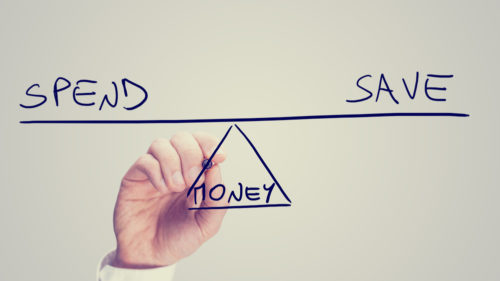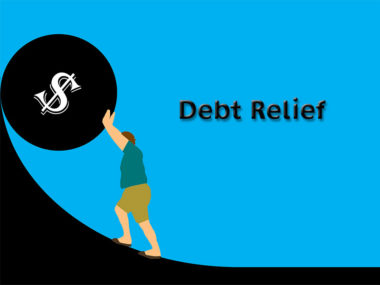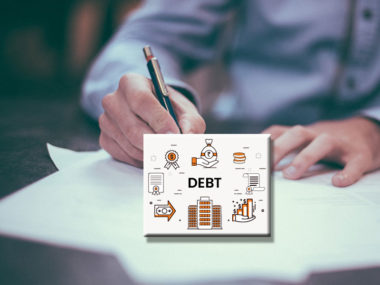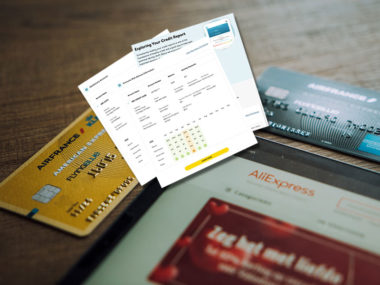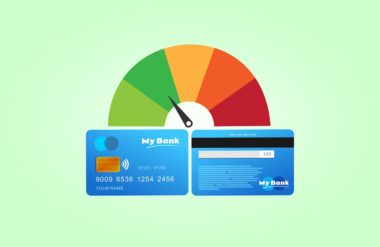You have control over your finances. You’ve got some debt, including credit cards, a car payment, and possibly a mortgage. You are confident in your current income. What more is there to being financially healthy? Well for starters, do your assets outweigh your debts? Meaning, are all of your assets likely to equal extra income and/or savings in the end or are they likely to turn into a liability instead? Today, we’ll go through how to save with a purpose, how to know if you’re actually drowning in debt, and what types of debts could be a liability.
Table of Contents
How Do I Compare Debts Versus Assets?
Assets can be debts, but not all debts are assets. Certain types of debts can become a liability if you’re not careful. So, what kinds of things count as assets. Well, your income is an asset, of course, but savings, debts, and investments can also be assets.
For example, let’s take a look at a credit card. When you spend money on your credit card, you’re now technically in debt. However, that debt does not mean anything good for your finances. When you spend money you have to pay it off, period. You don’t get an extra incentive just for paying it off. You’re simply building good credit when you pay it off on time, which is a great reason for anyone to apply for a credit card.
A different example would be a mortgage. Every time you make a payment on that property, you own a little bit more of the total value for that house and you owe the bank a little bit less. This gives you equity in your home — a textbook asset. You’re paying for a property that will hopefully make you money down the road. Even if you still owe some money on the property when you decide to sell it, it can be considered an asset because you have the opportunity to make all of your money back (and hopefully some extra) when you go to sell it. Anything that could make you a profit in the end, is definitely an asset.
When Does a Debt Become a Liability?
That brings us to liabilities. Using that same example (your mortgage) it could become a liability for you if you happen to get in over your head. If you have other outstanding debts, for example, that could take a toll on all of your investments that you currently see as assets. Unpaid debts, like taxes and loans, could cause a lien to be placed on your property until you’re able to pay it off. This means that you won’t be able to sell that property until you take care of your outstanding debt. Even if you have some equity in the home — a portion of the total value that you have paid for — a lien can still mean you end up losing the property.
This also means that if you have additional taxes, fees, and interest tacked onto your outstanding debt, you may end up having to pay more than you originally intended or were asked to pay. In turn, that equates to even more lost assets in the end because it’s going to pull from your income or savings in order to pay off those debts.
Not to mention, if you simply become overwhelmed with your mortgage payment and fail to make your payments on time, your home may be seized altogether. In this case, the bank will take back the home and will resell it to a new buyer. If for some reason the home sells for less than your loan was originally for, you may still be liable for the remaining balance unless you can work something out with your bank. Of course, you can see that this would be a huge loss to your total assets.
What Should My Asset to Debt Ratio Look Like?
This part of your financial picture will look completely different from person to person. That is not only because all of our income is different from one another, but your financial goals are likely entirely unique as well.
A desirable debt ratio is one that doesn’t use up too much of your income or take away from other important aspects of your finances. You should have enough money to comfortably pay all of your bills, add some money to savings, and still have spending money left over for all your monthly essentials.
If you haven’t made a balance sheet yet, now is a good time to get started. This way, you can take a look at your current income to debt ratio and decide if you’re really in an optimal financial spot, given your present situation and future goals. Take a detailed look at all of your expenses, money that is going toward building your assets, and money that is being spent frivolously. Once you have it all on the page, you’ll be able to clearly see if your finances are matching your goals. You can then start to make adjustments based on looking at your entire financial profile.
What Should My Savings Goals Look Like?
Managing Debts:
If you’re like many of us, you’re a bit overwhelmed with debt. Do you spend half of your income on debt? What about a third of your income or more? If that sounds like you, it’s important to try and work hard to get some of that debt eliminated before you try and stretch yourself too thin. In a perfect world, you should be spending less than one third of your income on debt. Debts and bills should be your number one thought before anything else. These are the kinds of things that will stick with you for a long time and could potentially thrash your credit score. So, it’s important to give them due attention until you free up some of your income for other aspects of your financial picture.
When to Start Saving:
When you do feel like you have some wiggle room, saving is just as important as acquiring assets via investments or otherwise. Investments can mean more money down the line, but what happens when you have an emergency and you need money right now? It’s crucial to give yourself a financial cushion in case anything unexpected might happen and you need to dip into your savings. Having an emergency fund will stop you from having to ruin your hard work that you put into your savings accounts. You might be saving for retirement or for your next big purchase, but one emergency could severely impact your total assets.
What Should I Be Saving For?
After you have an emergency fund squared away, take a look at your current savings plan. How much are you saving, to what accounts, and how often? Optimizing your retirement savings is always a good thing to spend a little bit of extra money on. Max out your contributions if you can. This will help with earning 100 percent of your employer contributions, but it will also get you that much closer to comfortable retirement, faster.
Sadly, many of us are working later into life than we want to. Saving for retirement is hard, and it becomes even more imperative the closer that you get to retirement age. With that being said, if you have the means to set aside some extra money for retirement, don’t hesitate. Start doing it now.
What Are My Other Financial Goals?
With these two areas taken care of, you can start saving aside from your other financial goals. You’re already contributing to retirement and an emergency fund, so now you can save for yourself. Maybe you want to take a great vacation at the end of the year or maybe you have your eye on a new car that you’d like to buy. The choice is completely up to you, but keeping these assets separate will help you to balance your finances more accurately and keep clear goals in your sights.
A healthy financial picture means that you’re in tune with your income, savings, and debt to asset ratio. Evaluating your entire financial picture now can save you some serious stress later on when you’re stretching to meet last minute financial deadlines and goals. Start planning for the future now, this way you’ll always know that you can make any financial dream of yours come true.
Need help understanding your credit score or credit report, and how it relates to your financial goals? Visit the Fiscal Tiger credit score resource and learning center for tips and guides.
Image Source: https://depositphotos.com/
